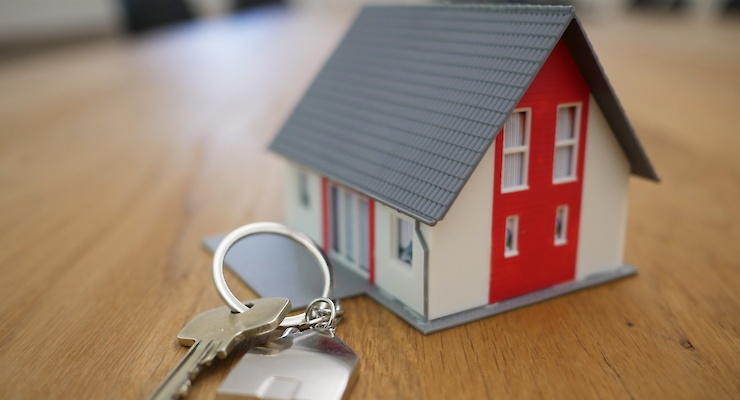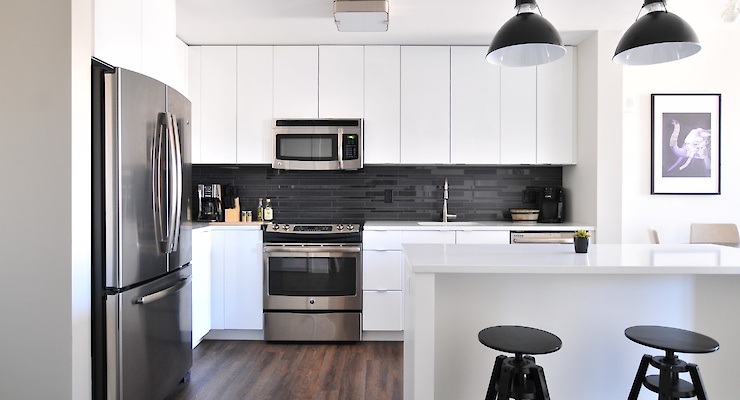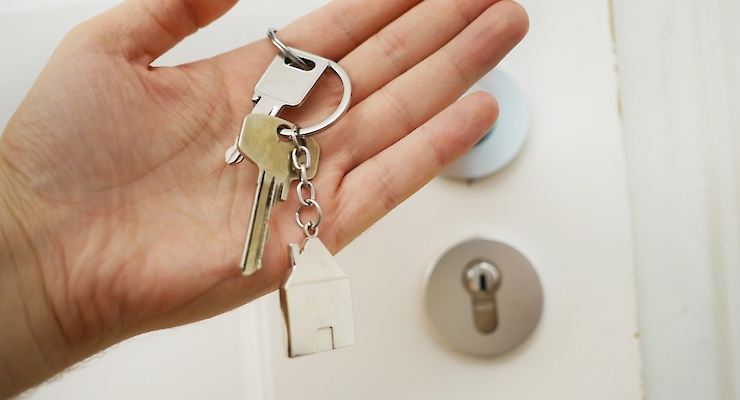


Head of Content

Mortgage Advisor & Director
Investment property: What you need to know
Investing in property can be one of the most reliable ways to earn money, as long as you do so responsibly.
There is a lot to consider when deciding if this is the right move for your financial future, and we want to make sure you know what those considerations are before proceeding. In this article we will cover:
- Purchase
- Rental Income
- Mortgage payments
- Stamp Duty
- Maintenance Costs
- Insurance
- Taxes
You will want to consider all of these factors before you invest in property.
This list is not comprehensive; there may be other factors involved in purchasing an investment property as well as some trends that might impact whether or not it's worth buying now. However, these points should give you enough information to form an educated opinion about whether or not investment properties are something you or your business should pursue at this time.
Once you've done some research into what type of investment will provide for your needs, it's time to start thinking about how you're going to finance your purchase.
How property investments work

If you're considering property investing, you will need to understand how the process works. It's not as simple as buying a property and selling it for more money later; there are many factors involved in making sure you get the best return on your investment possible.
There are several ways to become a property investor:
Real-Estate Investment Trusts (REITs)
REITs are a great way to invest in property without having to buy and sell individual properties. It's easy; you just put money into the trust and it collects rent from tenants, pays its own operating expenses and decides what/when to reinvest. The benefit of investing via a REIT is the low investment required.
Buy to let Property
If you're not keen on REITs, other options are to buy a single property or multiple properties as a buy to let. There is more risk involved with buying something outright as opposed to investing via a trust but it can also lead to greater returns if you find the right deals. Becoming a landlord is a long term investment and not everyone is prepared for the work involved.
Property development
If you're an experienced property investor, this is another option. You buy a property in need of improvements and perform the renovation work to appeal to your target buyer. The goal is to turn a profit when you resell the property, but this takes some serious financial investment as well as construction know-how in order to make sure that your renovation makes sense financially.
Buy a new build property
Typically a lower-risk option than property renovation and development, this is also a good option if you're new to the game. You buy a new-build property from a developer at a good deal and add value through staging and improvements before re-selling the property. Before considering this option, (and as with all property) you should make sure you're well informed about the area, development plans and any restrictions and covenants that may reduce the pool of willing buyers.
Invest in property abroad
Purchasing a foreign property is another option for property investors. If you're not sure about the UK market, it may be worthwhile looking into international markets instead. This option is a good one if you have the time and resources to invest in research about that market.
You will likely need to hire a property agent or lawyer, which can be expensive but it may also pay off in terms of finding quality deals with high ROI potential.
What makes a good investment property?
You'll want to look for a property that can generate a return on investment (ROI) while also minimising the costs associated with ownership.
This combines several factors and ultimately depends on the type of property and your personal goals of ownership.
Short-term vs long term investments
Depending on your goals, you'll want to consider how much time and money you are prepared to invest in a property. For example, if you're looking to generate a steady income through rent, you'll want to find homes in popular locations with lots of demand for tenants.
This will be different to buying a renovation property where the goal is maximising capital growth through smart enhancements and improving the property's appeal to buyers.
Experience level
Your personal level of experience will also determine the right property for you when it comes to investment. While you can learn on the job, it is always best to invest in a property that falls within your level of competency so at least initially. This will mean lower risk while you gain knowledge and experience which can then be used when buying more complicated or high-risk properties later down the line.
Risk appetite
A lot of factors go into finding the right investment property for you, but the most important is your own personal preference. How much risk are you willing to take on? What's your preferred level of involvement in each aspect - from purchasing through renovation and resale? The answers will determine how involved or hands-off you want to get with regard to your property investments.
Points to consider

Rental income
You will need to consider how much you can afford in mortgage payments based on your rental income, as well as what rent you're charging and whether or not it's reasonable for the area.
If you charge too little, then people won't want to live there, and if you charge too much, they will not be able to afford it.
Mortgage payments
Another consideration is the mortgage payment that needs to be paid on your property each month.
Your potential rental income has to cover this cost as well as any other renovations or maintenance costs associated with the home itself. It's important here not only to consider the initial purchase price but also what it will cost to maintain over time.
Stamp duty
Another fee you'll need to think about is stamp duty; this varies depending on where your property is located and how much it's worth.
Maintenance costs
In addition to those expenses, you'll need to factor in maintenance or renovations that need to be done on the property itself. In order for your investment to remain a viable one, it's important that these additional factors are taken into account and factored into how much rent is being charged.
Insurance costs
It's also important to consider the insurance that will be necessary for your property investment. These costs will vary depending on the type of property you are investing in, but they're an essential part of being a successful investor.
Taxes
There are also going to be taxes that come with your investment property, depending on where you live and how much it is worth.
You might have to pay capital gains tax when you sell if there's been an increase in value, or if you've been renting it out for a long time. In addition to this, there may also be income taxes based on how much rent is being charged and whether or not your investment property has made a profit in that year.
This list only scratches the surface of what goes into purchasing an investment property; however, these points should give you enough information to form an educated opinion about whether or not it's something worth pursuing.
What are the risks of buying an investment property?
There is always some amount of risk involved in any type of financial transaction, including investing in property. It's important to know what those risks are before committing to buy so you can make sure your money isn't put at unnecessary risk if things don't go as planned.
This is not an exhaustive list of potential risks involved with real estate investment, but it should give you a good idea about the ones to consider when making your purchase:
Rental default
If someone defaults on their payments or abandons the property altogether, then you can potentially lose your income stream until you can find another tenant to occupy the property - although this is an insurable risk.
Unexpected costs
Many landlords end up losing money on their investment because they fail to account for unexpected maintenance costs and other expenses associated with owning a rental unit.
If you forget to factor in property taxes, insurance or other costs associated with ownership then it will put you at risk of losing money instead of making it. You should know what the total cost for purchasing and maintaining an investment unit is before committing so there are no surprises later on.
Property values
Over time, property values in a given area can increase or decrease. If you buy a home in an up-and-coming neighbourhood and the market becomes oversaturated with similar housing options then your unit could lose value instead of increasing it over time.
This is where location comes into play - if you're buying for investment purposes, you should research the property's location and make sure it has a strong demand from buyers.
What are the benefits of buying an investment property?

There are many reasons to consider investing in property. While it's not without its risks, there are many reasons why so many people choose this path and reap significant benefits from doing so.
The following list includes just a few examples:
Property appreciation
One of the main reasons so many people invest in property is for capital growth. Over time, some properties can increase significantly in value and give you a nice return on your initial investment - although it may not be immediate.
Regular rental income
Buying a rental property also helps you earn a steady income each month which can help with your day-to-day living expenses.
Portfolio diversification
You can use property investment to diversify your portfolio and reduce the risk of putting all your eggs in one basket. By diversifying across different assets classes (stocks, bonds, property), you reduce the risk that one investment tanking can ruin everything else in your portfolio.
Reliable investment income
Property is considered more reliable than other investments because the price of property has continued to increase over time - even following recessions.
Can investment property be refinanced?
Yes, investment property can be refinanced.
Refinancing an investment property will help you to reduce your interest rate and monthly repayments, which can free up funds for other investments or expenses.
Finding the right lender for your situation is critical; lenders want to make sure they're going to get their money back with interest so they'll want to make sure you can afford it, and that the property is a solid investment.
Engaging an experienced whole of market mortgage broker will not only help you find the best lender for you and your property but will also help to boost your chances of approval. For more information about refinancing your investment property or finding the right lender to help you make an informed decision on how best to proceed with your plans start comparing deals with Teito today!

Get expert mortgage advice tailored to your property type
How much rental income should an investment property generate?
As a general rule, income from an investment property should cover at least 125% of your mortgage repayments, though some lenders are now looking for 140%. If your rental income is falling short, then you may have a problem.
Is property investment a good idea?
If you have the resources and are willing to put in the work, then property investment could be a good idea because it's one of the most reliable ways to earn money.
There are many benefits to investment property, however, you need to make sure that you don't get in over your head. Make sure you take the time to understand what it is you're getting yourself into and why certain decisions were made before signing on any dotted lines.
Will property prices continue to increase?

The Bank of England issued a warning in May 2020 about the possibility of house prices dropping by 16% owing to the epidemic. However, house values have continued to rise unabated. In August 2021, property prices in the UK were on average £25,000 higher than in 2020, and have continued to increase spurred on by low mortgage rates and pent up demand.
Of course, no one knows what is around the corner when it comes to property prices. However, as of 2021, it looks like the market will continue to rise and more people than ever before are choosing property investment as a means of income generation. In comparison to other types of investment, property is generally deemed to be lower risk.
Setting up a limited company for property investing
If you're considering property investment, you might be wondering whether it's worth establishing a limited company. The answer is that it will depend on the type of investment you're looking at and how much time you want to spend keeping up with everything related to running a business, but in general, this can be useful if you have any employees or are renting out multiple properties.
Stamp duty for buy to let property
In the UK, you'll pay more stamp duty when buying a buy to let property or second home than on your primary residence.
The stamp duty for buy to let property varies based on the property price, ranging from 3% for homes under £125,000 up to 15% on the portion of a property price over £1.5m.
How do I know when I should sell an investment property?
There are a few signs to look out for that may indicate it's time to sell your investment property, including if you can't find enough tenants or the rent is not covering expenses. You may also want to sell your investment property if you need the money for another purpose.
Get expert advice from our mortgage advisors
Our team have helped many experienced and aspiring property investors and landlords to buy a property and reach their goals.
If you're looking for help with your first property purchase, refinancing an existing buy to let mortgage or if you would like to know more about the other services we offer please get in touch today.
If you are considering investing in property then it is important that you do so responsibly and ensure that all of your bases are covered. The best thing to do is to find a mortgage advisor who can help you explore all your options and ensure that the right decisions are made.
We work with hundreds of lenders offering thousands of deals, and we can help you find the perfect one for your situation. Get started comparing deals now and you could get a mortgage in principle in minutes!
Choosing an Adviser
Selecting a qualified and experienced mortgage adviser is of great importance. To choose a suitable adviser, evaluate their qualifications, experience, and reputation, and ensure they are regulated by the Financial Conduct Authority (FCA).
Read reviews from previous clients and make sure they provide a clear explanation of the products and services they offer, as well as the fees and charges associated with them.













































































































































